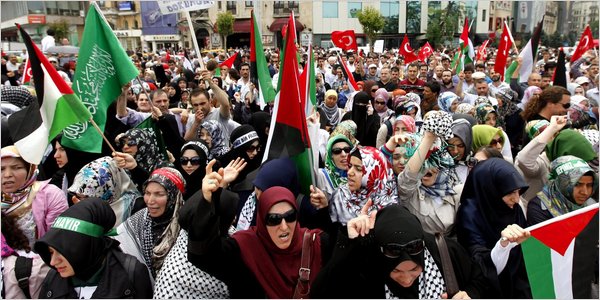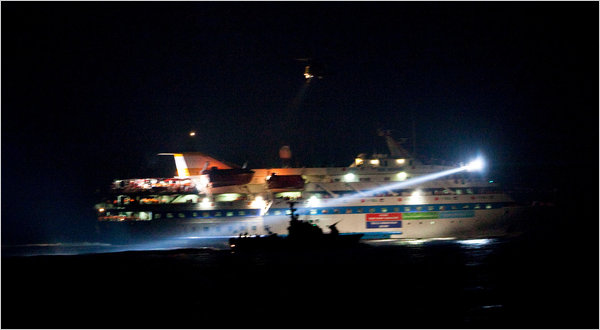J Street is the political home of the pro-Israel, pro-peace movement.
From: [email protected]
Sent: 5/31/2010 1:19:58 P.M. Eastern Daylight Time
Subj: Shocking News Off Gaza
|
Like many of you, I am still absorbing the terrible news from the waters off of Israel and Gaza this morning. Going into this weekend, we knew there were few good outcomes likely from the latest effort to break the blockade of the Gaza Strip in the face of Israel’s determination to prevent it. But none of us expected the tragedy we woke up to this morning, a day on which we honor the memory of U.S. soldiers who served and died in prior wars. As one of our supporters wrote to me this morning, “how many more people need to die, how many more children deprived of a father or mother, before this conflict is settled and people can live in peace and security, while devoting their energy to building better lives?” With details still emerging and propaganda spinning furiously on all sides – one simple truth stands clear to us: today’s events are the natural outgrowth of the larger, ongoing failure to resolve this conflict peacefully through a two-state solution. It is up to our leaders to turn this crisis into a real push to end the conflict between the Israelis and Palestinians now – otherwise events will spin even further out of control. We will have more to say on how in the days ahead. In the meantime, feel free to share your thoughts with us by responding directly to this message and we’ll put together a webpage for feedback and reactions from the J Street community later on in the week. Our statement reacting to the day’s events follows: J Street is deeply shocked and saddened by reports that at least 10 civilians have been killed and dozens more wounded (including Israeli soldiers) this morning as Israel intercepted a naval convoy bringing humanitarian supplies and construction materials to the Gaza Strip. We express our condolences to the families of those killed and we wish the injured a full and speedy recovery. We hope that leaders on all sides will take immediate steps to ensure that this incident does not escalate into a broader round of violence – in Israel, in Gaza, or in the region. There will undoubtedly be calls in the coming days for a UN investigation into today’s events. A credible, independent commission appointed by the Israeli government should provide the world with a full and complete report into the causes and circumstances surrounding the day’s events and establish responsibility for the violence and bloodshed. This shocking outcome of an effort to bring humanitarian relief to the people of Gaza is in part a consequence of the ongoing, counterproductive Israeli blockade of Gaza. J Street has been and continues to be opposed to the blockade – believing that there are better ways to ensure Israel’s security and to prevent weapons smuggling than a complete closure of the Gaza Strip. We do not know yet what the impact of today’s incident will be on the just-restarted peace process, on Israel’s relations with the international community, or on the health of Arab-Jewish relations within Israel itself. We do know, however, that today is one more nail in the coffin for hopes of ending the Israeli-Palestinian conflict peacefully and diplomatically and for preserving Israel’s Jewish and democratic character. We urge President Obama and other international and regional leaders to take today’s terrible news as an opportunity to engage even more forcefully in immediate efforts to end the Israeli-Palestinian conflict. We’ll be in touch, – Jeremy Jeremy Ben-Ami ———- J Street is the political home of the pro-Israel, pro-peace movement. |






 Photographs
Photographs 



